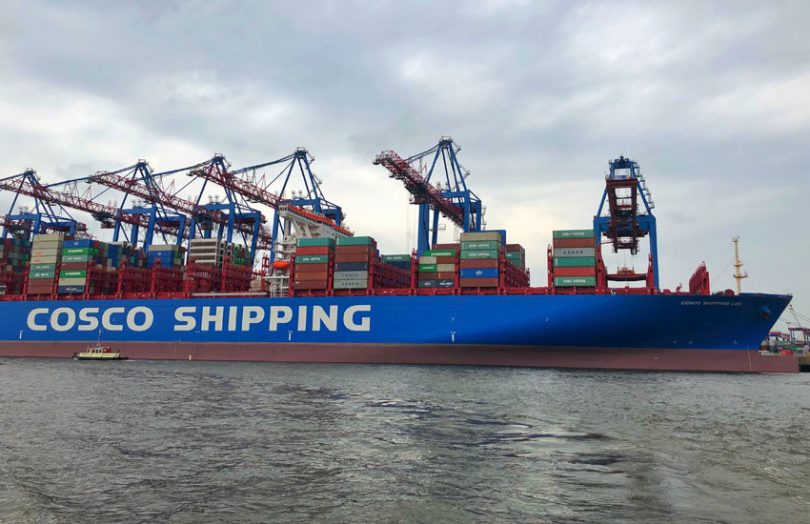Today Ant Group and Alibaba Group signed a deal with COSCO Shipping to explore using Ant Blockchain technology for the global shipping industry. COSCO is the third largest container shipping company in the world and is also a member of Global Shipping Business Network (GSBN).
Ant stated the motivation is to address the complexity of the shipping process, the numerous steps involved with many participants. Blockchain aims to link all the organizations from logistics providers and shipping companies to ports and financiers. Ant specifically highlighted supply chain finance, which is the top use case for enterprise blockchain in China.
“Through Ant Group’s blockchain technology, we look forward to supporting the digital transformation of the global shipping industry, and working with COSCO SHIPPING to make it easier and more efficient to trade globally,” said Eric Jing, Executive Chairman of Ant Group.
Ant and Alibaba appear to be targeting the shipping sector. At the end of May, the companies signed a similar agreement with China Merchants Port group.
Additionally, Alibaba recently joined the International Port Community Systems Association’s (IPCSA) blockchain bill of lading initiative.
COSCO has also been experimenting with blockchain with the Quingdao Port, which is part of the Shandong Port group. In late June, it announced it processed almost 500 containers, saving 24 hours for each container. The solution involves a paperless pick-up service for import customers with sea waybills or electronic bills of lading.
Apart from the GSBN, the other large container shipping network is TradeLens from IBM and Maersk.
Proprietary solution
Ant is keen to point out that the Ant Blockchain is a proprietary solution. Between Ant and Alibaba, they own the most blockchain patents worldwide. The vast majority of blockchain protocols – the base blockchain layer – are open source, so a proprietary offering is a double-edged sword. On the one hand, the Ant Blockchain claims a reasonable performance rate of a billion transactions a day, equivalent to 11,500 transactions per second. On the other hand, as a collaborative solution, there is a wariness about being locked into the base protocol.






